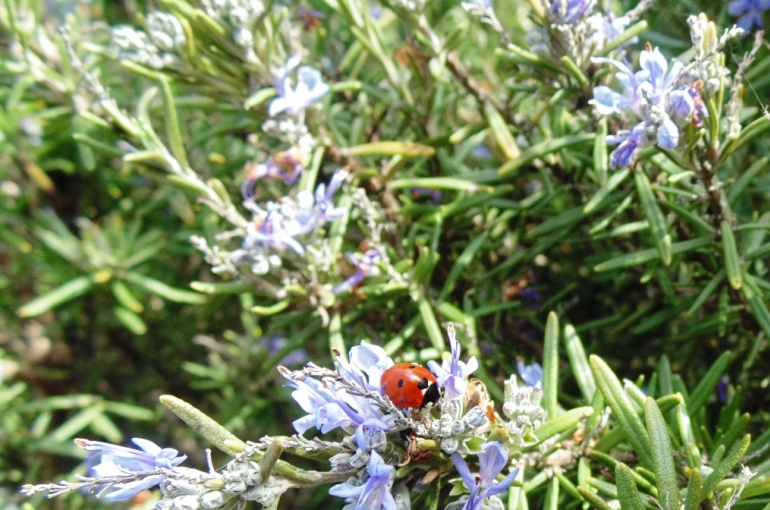Rosemary Plant Information

This post is also available in:
This post is also available in:
![]() Español (Spanish)
Español (Spanish) ![]() Français (French)
Français (French) ![]() Deutsch (German)
Deutsch (German) ![]() Nederlands (Dutch)
Nederlands (Dutch) ![]() العربية (Arabic)
العربية (Arabic) ![]() Türkçe (Turkish)
Türkçe (Turkish) ![]() 简体中文 (Chinese (Simplified))
简体中文 (Chinese (Simplified)) ![]() Italiano (Italian)
Italiano (Italian) ![]() Ελληνικά (Greek)
Ελληνικά (Greek) ![]() Português (Portuguese (Brazil))
Português (Portuguese (Brazil))
Rosemary Plant Wiki
Rosemary (Rosmarinus officinalis) is a woody and aromatic herb that can live for 15-20 years. It is an evergreen shrub with an average height of 4 feet (1,2 m). Rosemary has flowers of white, purple or blue color and fragrant, leathery leaves, which look like pine needles. It is a member of the Lamiaceae family, which includes many other herbs (basil, lavender, sage). Rosemary is a bee plant and attracts bees, as they enjoy rosemary pollen.
Rosemary is used since ancient times to enhance and strengthen the memory. It is a plant native to the Mediterranean region, but it is cultivated in more than 80 countries for home or professional use. It is propagated by seeds or cuttings during spring and prefers warm and moderately dry climates. The stems are collected during the summer and are often left to dry. The leaves can be used as flavor boosters in cooking, but they are mostly distilled for their essential oil. Rosemary essential oil is widely used as ingredient in hair growth shampoos and various lotions, soaps and other cosmetic products. It is also used widely in the pharmaceutical industry, as rosemary oil has been reported to ease colitis, asthma and eczema.
However, we must be very cautious when using rosemary oil products (especially homemade), due to frequent allergic reactions. People with history of epilepsy, with high blood pressure or in pregnancy are strongly advised to ask their physician before using homemade or commercial rosemary products.
You can enrich this article by leaving a comment or photo of your rosemary plants.
1.) Rosemary Plant Information
2.) How to grow Rosemary at home
3.) Growing Rosemary for Profit
4.) Rosemary Growing Conditions
5.) Sowing and Planting Rosemary, Seeding Rate and Number of Plants per Hectare
6.) Rosemary Water Requirements
7.) Rosemary Fertilizer Requirements
10.) Rosemary Plant Essential Oil Yield
Do you have experience in Rosemary cultivation? Please share your experience, methods and practices in the comments below. All the content you add will be soon reviewed by our agronomists. Once approved, it will be added to Wikifarmer.com and it will influence positively thousands of new and experienced farmers across the world.








































































